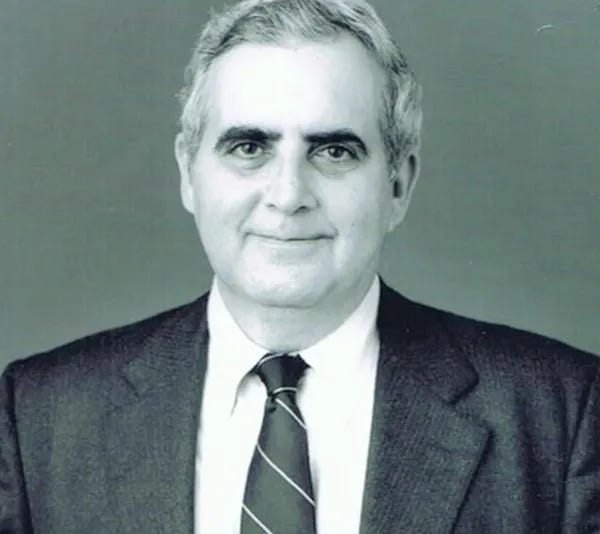Charlie Peters Would Have Loved the Washington Post's Series on Civil Servants
Donald Trump won't read it, which is all the more reason why you should.
Charlie Peters
I’ve been thinking a lot lately about my late mentor, Charles Peters, the founding editor-in-chief of The Washington Monthly. Charlie devoted his professional life to explaining the unglamorous business of what the federal government does on a daily basis to make people’s lives better. He was a big-government liberal who worshipped Franklin Roosevelt, but he well understood the various ways that government bureaucracy, however necessary, can undermine responsive government and sideline promising new approaches. He used the Monthly to look at the various federal agencies as Margaret Mead might look at a South Sea island culture, understanding that democratic governance depended on familiarity with that culture to navigate around whatever obstacles it might pose. Charlie was extremely shrewd about people, appreciating their strengths while recognizing their weaknesses, and he approached the federal bureaucracy the same way.
Charlie was a great admirer of Michael Lewis’s book The Fifth Risk, which described the various risk-assessment functions the federal government performs that most people never think about, most especially President Donald Trump, who arrogantly blew off a presidential transition plan arranged by Chris Christie and then proceeded to manage the bureaucracy chaotically for four years. Now Lewis is overseeing a series of pieces in The Washington Post that profile civil servants who perform all sorts of functions people never think about, and do these jobs with enormous creativity and energy. (I can’t find a Post landing page for the series, but the nonprofit Partnership for Public Service, which assisted with the series, created one here.) The administrative state is much maligned, especially by MAGA lunatics, but its machinery is vitally necessary, as I tried to explain in an essay earlier this year in the journal Liberties (“A Prayer for the Administrative State”), and both the so-called Deep State and the tired arguments with which conservatives oppose it have been around much longer than most people realize—around, indeed, since the dawn of the industrial revolution made more formalized regulatory governance necessary. Moreover, while the people who populate the administrative state are of course not uniformly bright and public-spirited—they’re people, just like everywhere else—they certainly tend that way, because why choose this job if you don’t? I argued that point two years ago in another essay for the New Republic, “Washington Is Not A Swamp.”
But I’m here today to pitch a third essay, my latest for the New Republic, praising the Post series while pointing out (as Charlie often did) that despite serving a readership disproportionately consisting of civil servants, the Post has not always made much effort to write about who they are and what they do. So bravo to Lewis and to Post opinion editor David Shipley for creating this excellent series, which ought to be published as a book. You can read my piece here.


